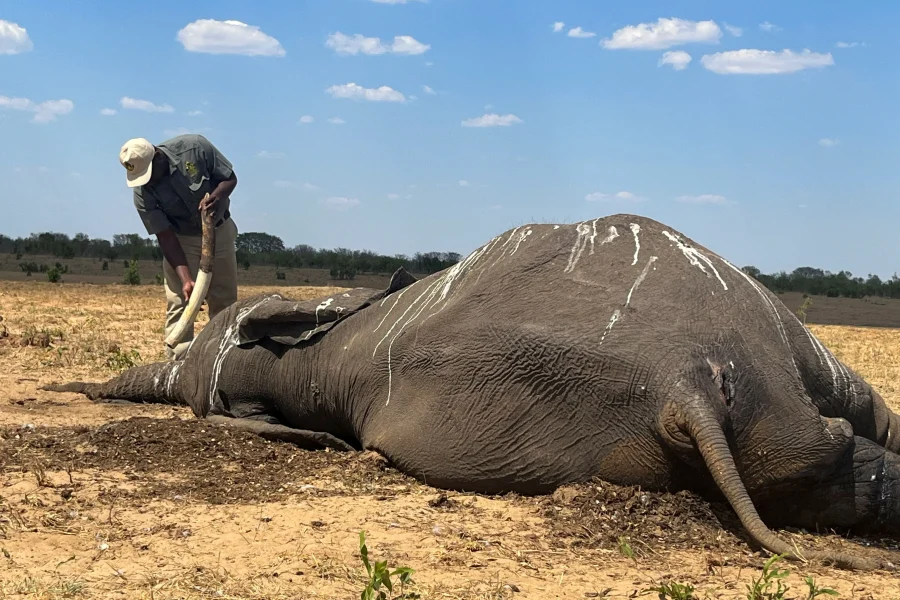Dozens of elephants have died of thirst in Zim-babwe’s popular Hwange National Park, and con-servationists fear losing more as a drought caused by climate change and the El Nino global weather pattern dries up watering holes.
The seasonal El Nino, which causes hotter, drier weather throughout the year, has been exacerbated by climate breakdown, scientists say, a cause of concern at the ongoing COP28 discussions on climate action in Dubai.
Hwange has no major river running through it, and animals rely on solar-powered boreholes, Zimbabwe Parks and Wildlife Authorities (Zimparks) official said.
“We are relying on artificial water because our surface water has declined. Since elephants are water dependent, we are recording more deaths,” Zimparks principal ecologist at Hwange National Park, Daphine Madhlamoto, said.
The elephant population in Hwange is 45,000, and a fully grown elephant requires 200 litres (53 gallons) of water daily. But with water sources dwindling, the solar-powered pumps at the 104 boreholes or wells have not been able to draw enough water.
This news agency saw dozens of elephant car-casses near watering holes, and park officials said other elephants have died in the bush providing ready prey for lions and vultures.
“The park has been witnessing the impact of climate change. We have been receiving less rains,” Madhlamoto said.—APP










